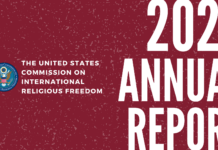The following advisory guidelines for the Church of Ireland’s response regarding the novel coronavirus (Covid–19) reflect previous advice provided by the Church as a response to pandemic flu. The guidelines offer a general framework to parishes, subject to further approval or other advice that may be considered appropriate by the diocesan bishop.
1. Follow all public health guidance provided by state authorities – the Public Health Agency in Northern Ireland (www.publichealth.hscni.net) and the Health Protection Surveillance Centre in the Republic of Ireland (www.hpsc.ie).
2. Physical interaction during services, including the Sign of Peace, should be suspended. Clergy may choose to give the congregation permission to carry out an alternative Sign of Peace that does not involve hand contact (e.g. a smile, nod or bow) if so wished. Shaking hands on greeting and departure at religious services/gatherings should be suspended. Observe good hand and general hygiene – thorough hand–washing with soap or sanitisers and disposal of tissues.
3. Stay at home if you feel ill and display influenza–like symptoms. The symptoms to be aware of in the case of the coronavirus include cough, shortness of breath, difficulty in breathing, and fever. Do not come to church services until you feel well.
4. The Church’s duty of care extends to members of the clergy. If you have influenza–type symptoms, do not call the clergy for pastoral visitation. Pastoral support for parishioners who are unable to attend church services should be provided by telephone or online (e.g. Skype).
5. Everyone administering Holy Communion should wash their hands or use alcohol–based hand gel before beginning. Holy Communion should be administered only in one kind (bread) and placed into the hands only and not onto the tongue. Only the celebrant should drink from the chalice. Holy Communion is normally received in both kinds separately – bread and wine – but may be received in either kind, and those who are incapable of receiving the sacrament are to be assured that they are by faith partakers of the body and blood of Christ and of the benefits He conveys to us by them (Book of Common Prayer, p.440). Intinction should be avoided.
Guidance for religious services has been provided by the Health Protection Surveillance Centre and is available at this link.
Any further guidance for either jurisdiction will be circulated as and when available.
Approved by the House of Bishops and the Honorary Secretaries of the General Synod



